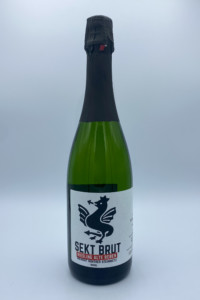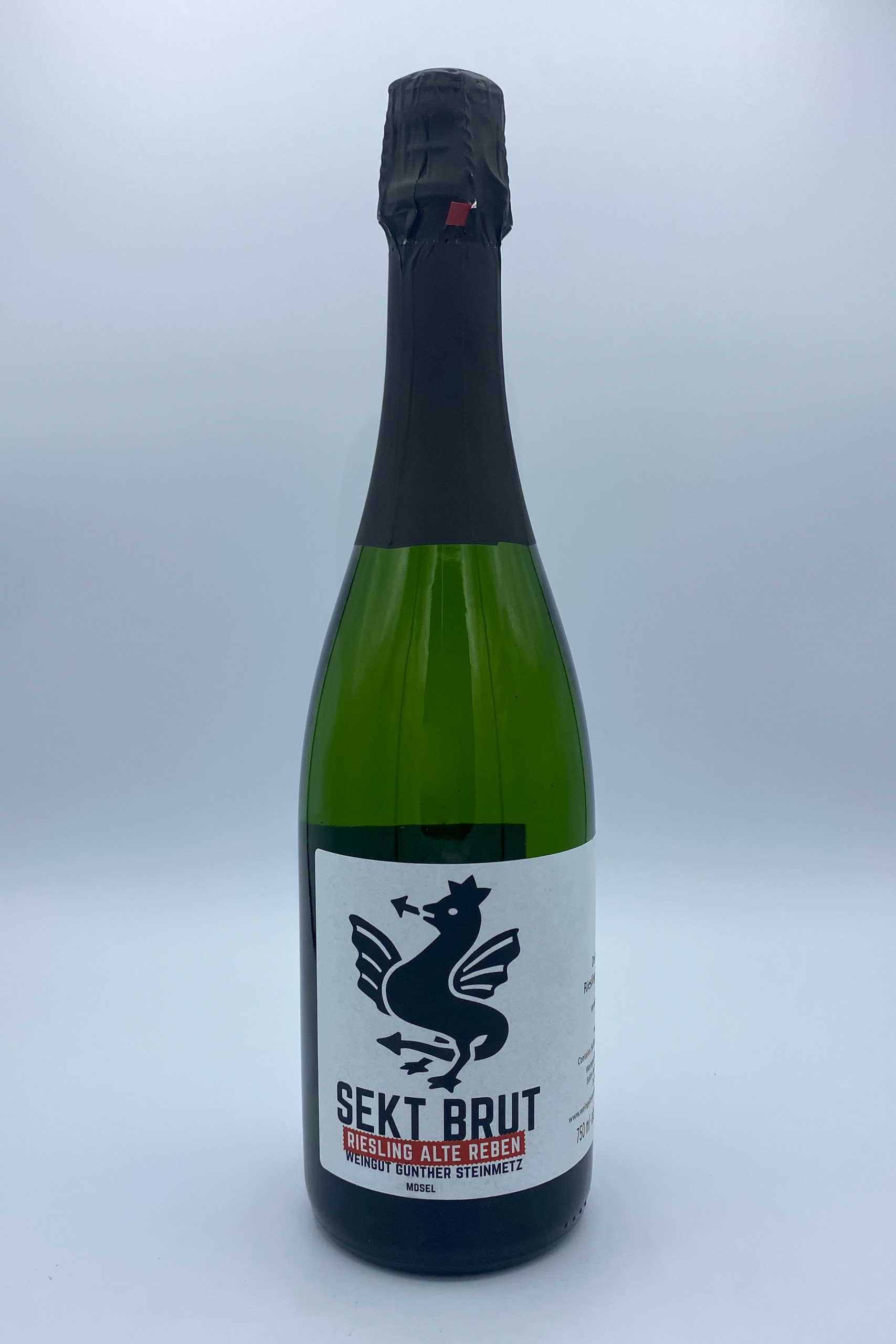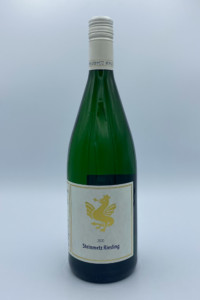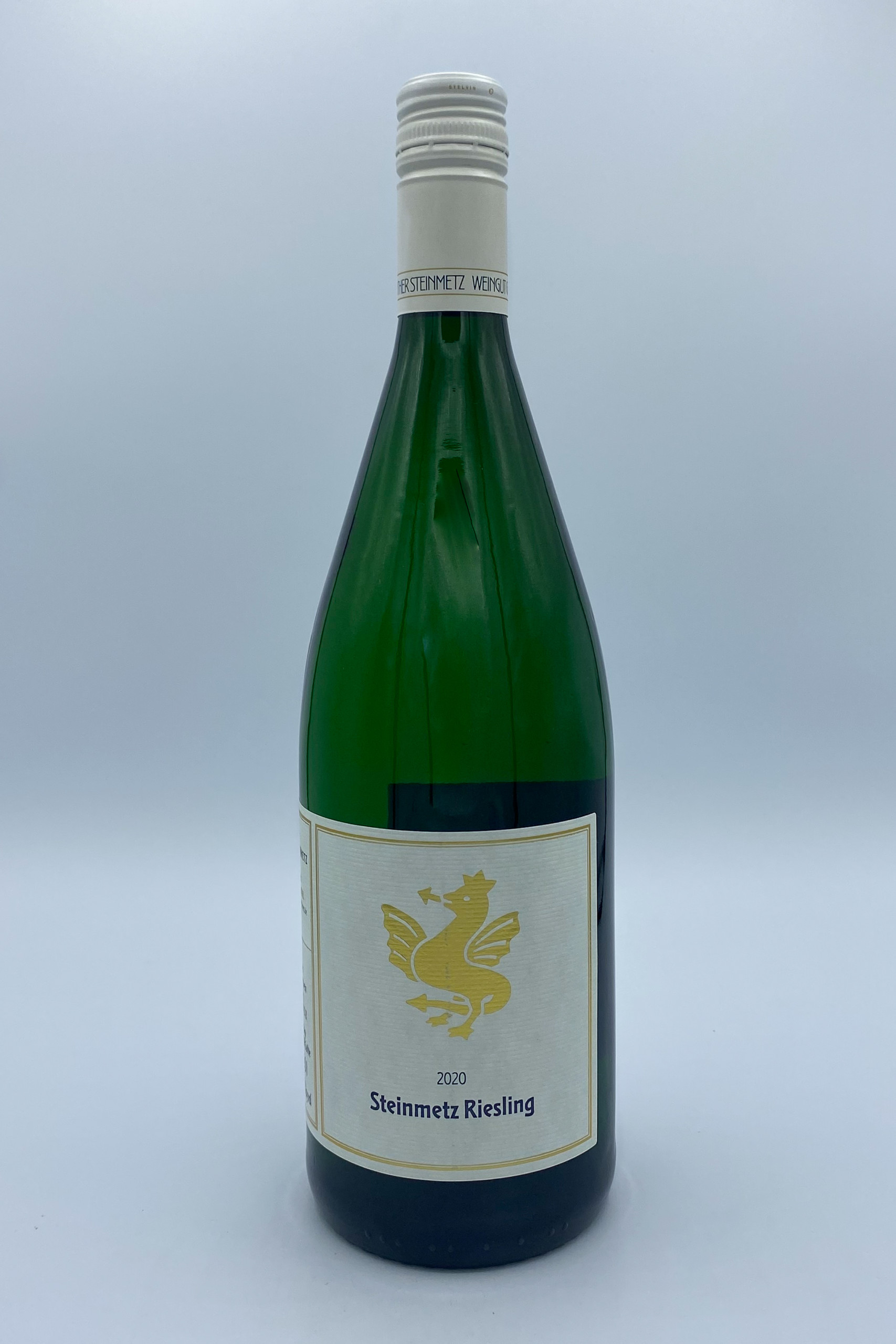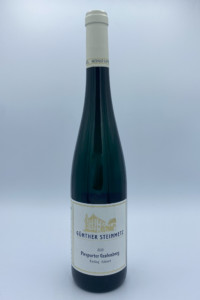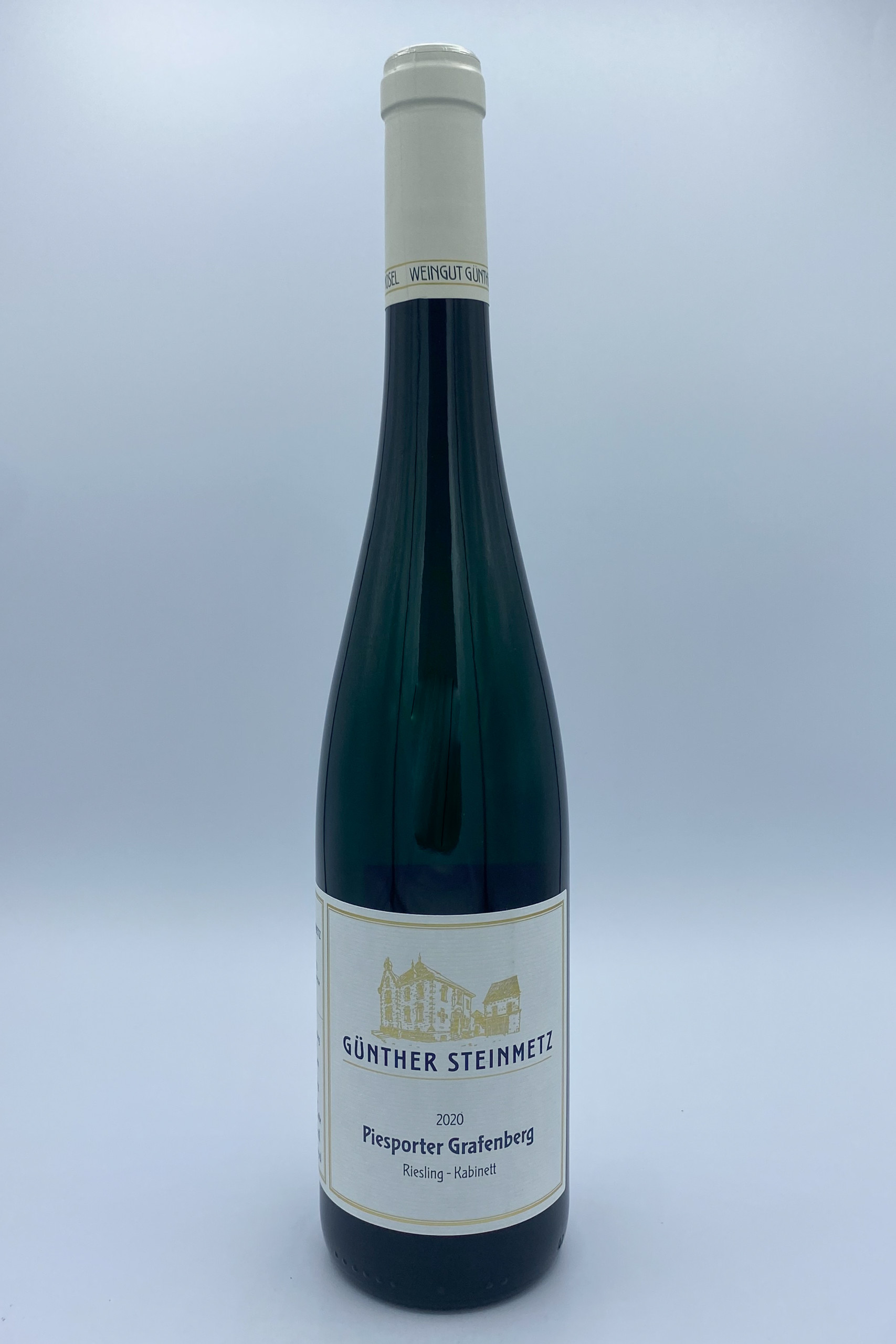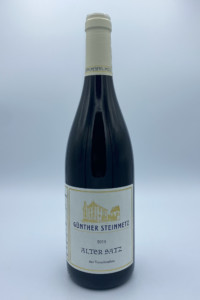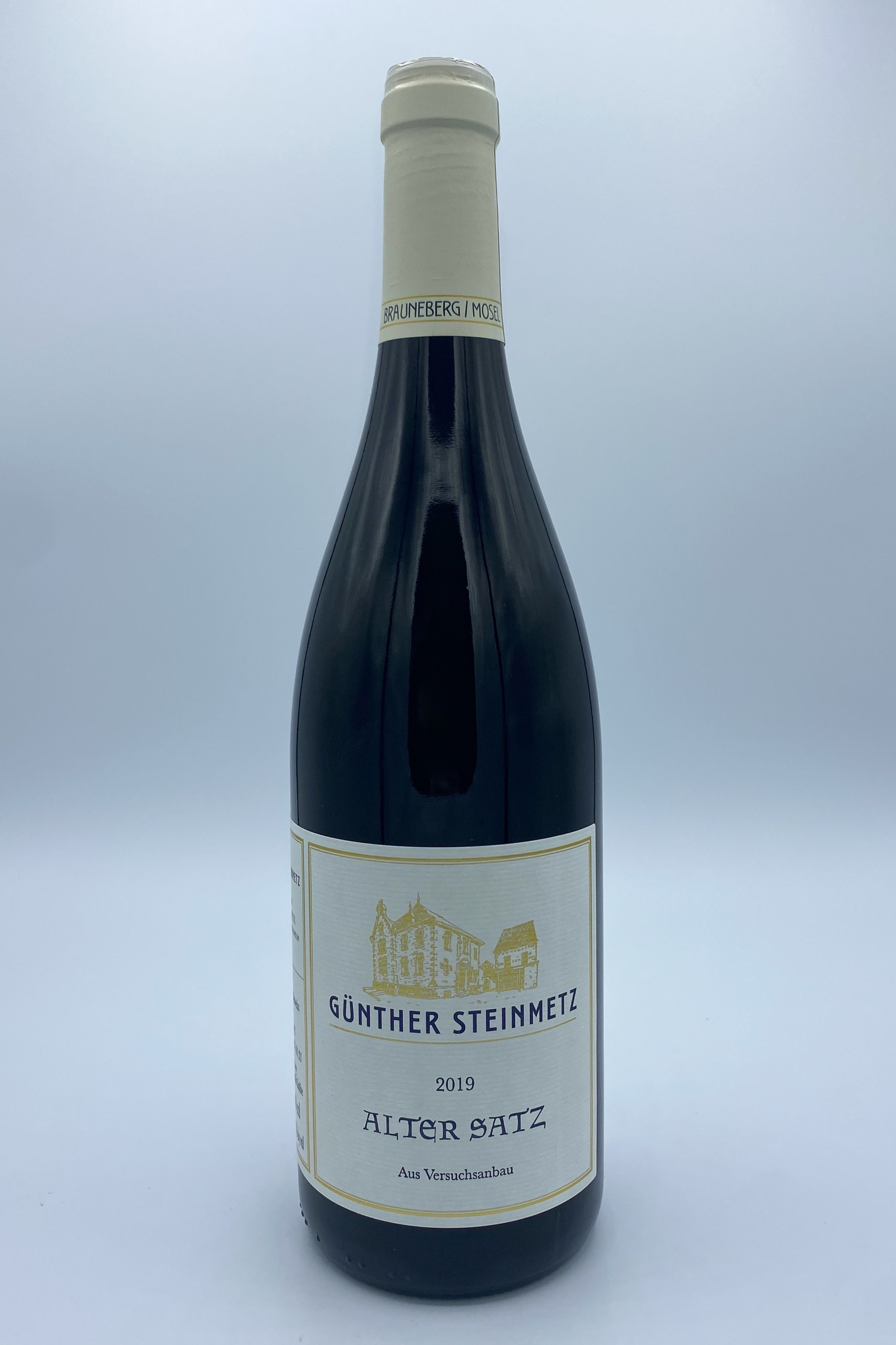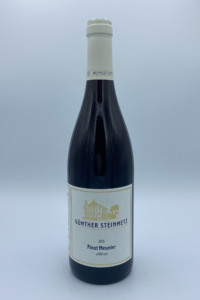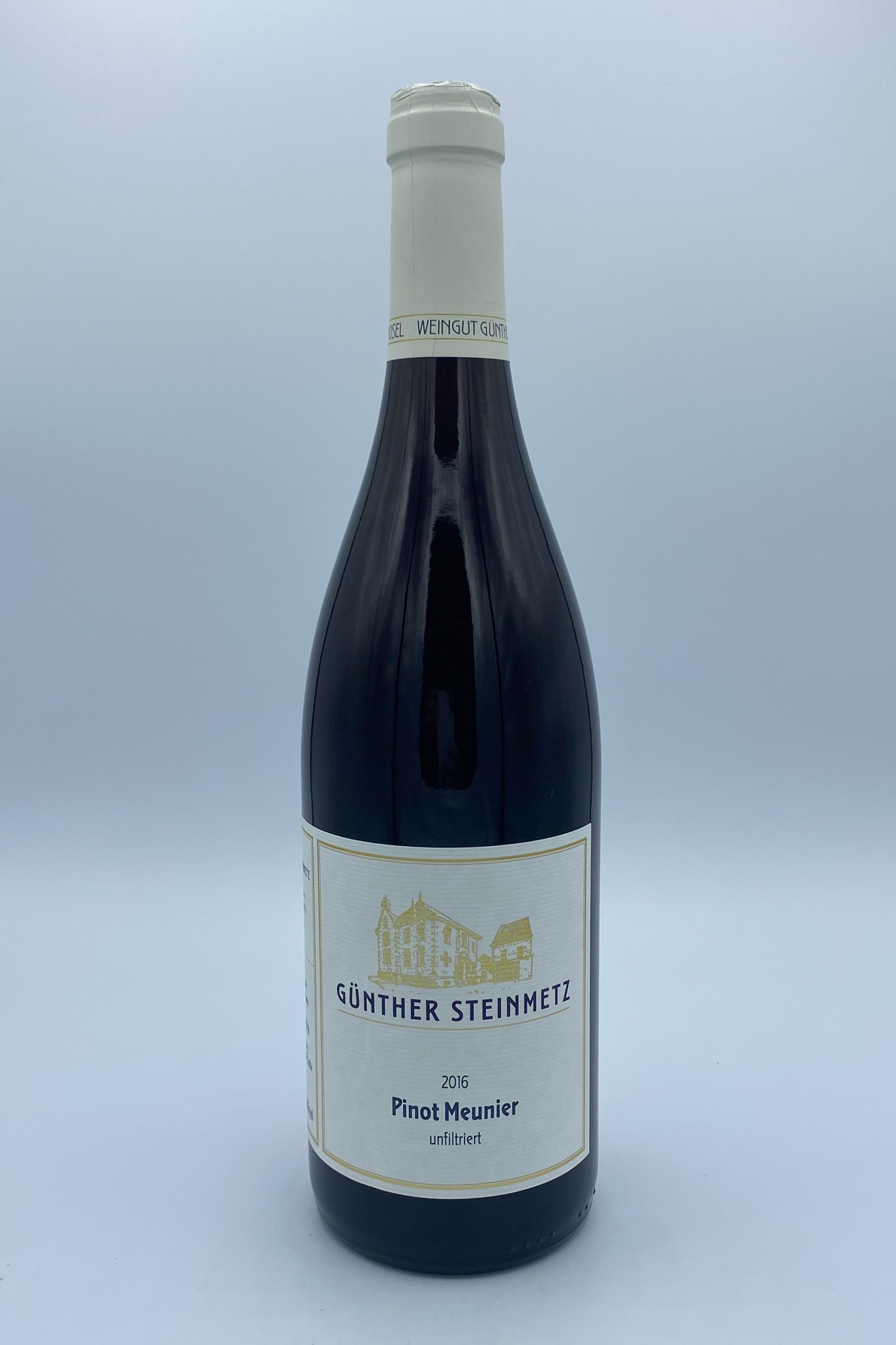Gunther Steinmetz
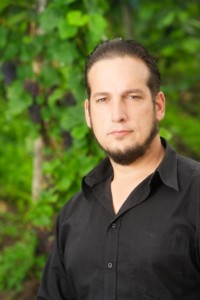
Stefan Steinmetz
About
Owners: Stefan and Sammie Steinmetz
Winemaker: Stefan Steinmetz
Vineyards: 14ha across thirteen different parcels
Vineyard management: Biodynamic practices, not certified
Soils: Slate (red, blue, grey, brown, and silver)
Grapes grown: Riesling, Pinot Noir, Pinot Meunier, Pinot Gris, Pinot Blanc, Merlot
Annual production: 78,000 bottles
Quick facts:
- This husband-and-wife team focuses on traditional Rieslings from extremely steep historical vineyard sites.
- Their “Alter Satz” red wine is a field blend of nearly extinct medieval grape varieties.
- Check out this cool profile of Stefan’s wife Sammie in TRINK.
Stefan Steinmetz is the fourth generation of his family to make wine in Brauneberg, in the Mosel. The business was founded in the early 1900s as not only a winery but also a butcher, inn, guesthouse, and farm. Stefan’s father Günther established the reputation for quality the winery is known for today after taking over for his father in 1958, and Stefan followed in his footsteps by taking over as cellar master and cultivation manager in 2000, at the age of only 22. He worked hand-in-hand with his mother Edith at the start, and since 2014 his wife Sammie has been his partner in running the estate.
Stefan is dedicated to “working close to nature,” as he puts it. They practice what they call “natural viticulture,” which means using no fertilizers, herbicides, or insecticides, plus controlling yields and carefully harvesting and sorting by hand. They’ve focused on acquiring plots of old, own-rooted Riesling parcels when possible. The Brauneberger Juffer site is the trademark of their winery, and they also own plots in such famous sites as Kestener Paulinshofberg, Piesporter Goldtröpfchen, Wintricher Geierslay and Oligsberg, Mülheimer Sonnenlay, Veldenzer, Grafschafter Sonnenberg, and Dhroner Hofberg. The extremely steep slopes in these areas mean that they can only be worked by hand.
In the cellar, Stefan works without any additives–no yeasts, no fining agents, no acidification or deacidification, and no animal proteins whatsoever. Grapes are processed and pressed as gently as possible. Fermentations occur spontaneously in large wood casks or stainless steel tanks. The goal is to bring out the unique signature of each individual vineyard. As Stefan explains, his wines “should reflect the location, the soil, the microclimate and the characteristics of the vines, i.e. all the peculiarities of the environment in which they are grown – and this while incorporating my personality as a winemaker.”


